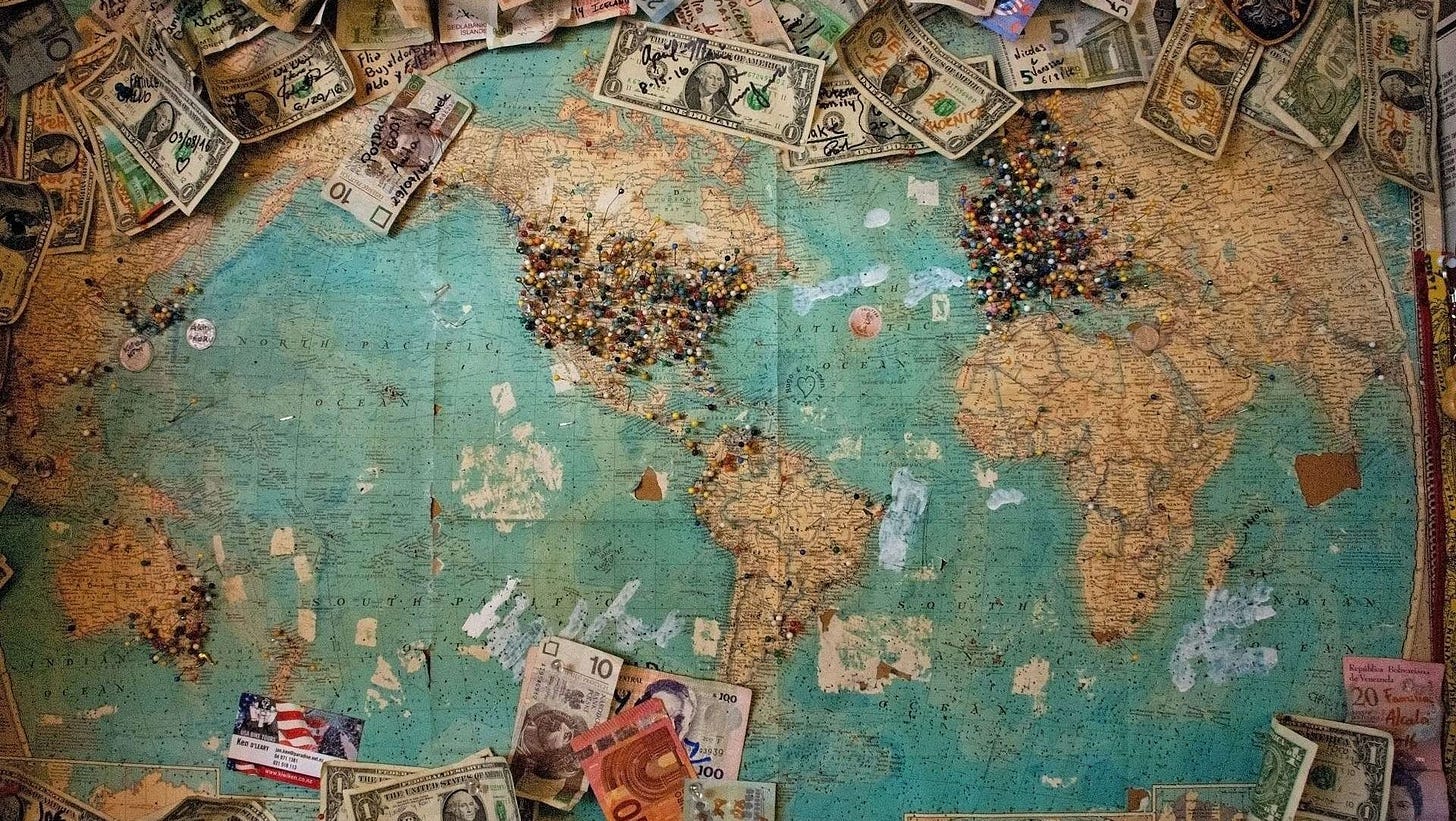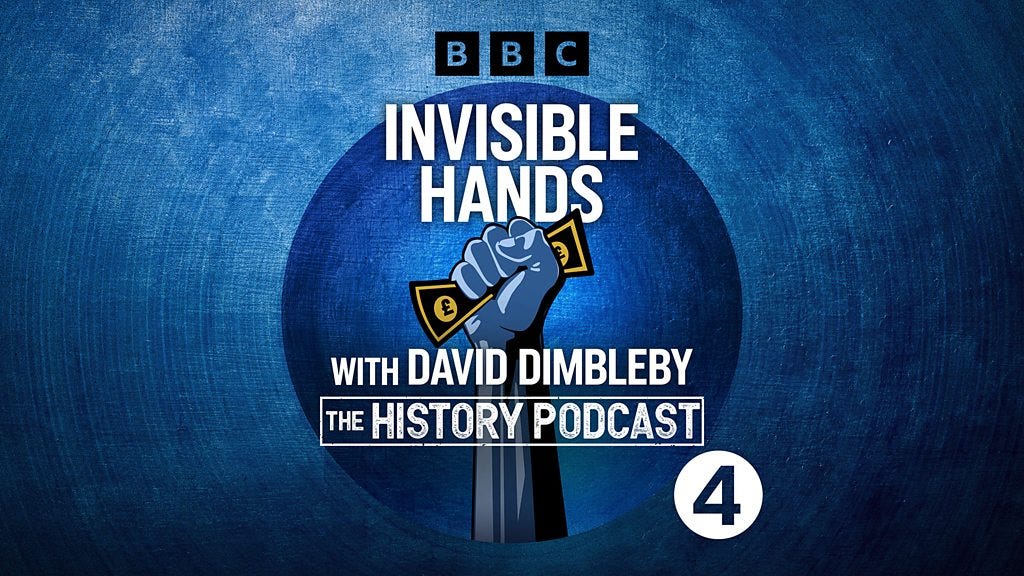Tariffs Aren't Liberating
Plus: How the IEA promotes free trade across the world & why wealth taxes don't work
In today’s newsletter:
Why tariffs are lose-lose
How the IEA promotes free trade across the world
Why wealth taxes don’t work
Exclusive interview with Yaron Brook
and more….
“Liberation Day”: that is what US President Donald Trump called Wednesday — the day he announced sweeping new tariffs on imports to the United States. But despite the label, it was far from a day of liberation. By making imports more expensive, the government is actively increasing the cost of living for American consumers.
The Trump administration has fallen for one of the most common misconceptions about trade: that it only benefits a country when it is the exporter. This could not be further from the truth. One of the greatest benefits of free trade lies with the importing country, where consumers gain access to a wide range of goods—crucially, at lower prices.
Whether it’s clothes, food, medical supplies, or mobile phones, access to the global market reduces the cost of living and increases consumer choice, often alleviating poverty in the process.
It comes down to a simple principle. No person, family, town, or country can produce everything it consumes—nor should it. Attempts to achieve self-sufficiency through protectionism are acts of economic self-harm. Freedom to exchange across borders is a win-win: it allows consumers to access a plethora of goods and services, improving welfare overall.
The economic theory underpinning this principle is clear. Adam Smith, in The Wealth of Nations (1776), emphasised the benefits of specialisation and the division of labour—illustrated by his famous pin factory example. David Ricardo extended this further with the principle of comparative advantage: even countries without an absolute advantage in production benefit from focusing on what they do best relative to other activities. John Stuart Mill later argued that trade boosts productivity by facilitating the exchange of better equipment, ideas, and competitive pressures.
Tariffs undermine all of this. They are artificial costs that harm consumers. The real-world evidence is pretty clear. In his first term, Trump’s tariffs on Chinese imports alone cost Americans over $800 per household. A 2020 study of 151 countries over five decades found that tariff hikes reduce GDP growth, with effects persisting for years. Output fell by up to 1.5 percent annually in countries with steep tariff increases.
Just because they are implementing bad economic policy across the pond, doesn’t mean we need to follow suit. Hitting the US with retaliatory tariffs would be harmful to Britain, needlessly increasing the cost of living for millions of Brits. Contrary to popular belief, imports, not exports, are the real wins from trade. We should eliminate tariffs and allow customers in the UK to access cheaper goods from across the world.
Reem Ibrahim
Communications Manager & Linda Whetstone Scholar
P.S. The best way to never miss out on IEA work, get access to exclusive content, and support our research and educational programmes is to become a paid IEA Insider. For a limited time only, new paid subscribers will receive a copy of Dr Steve Davies’ book Apocalypse Next: The Economics of Global Catastrophic Risks for free.
IEA Podcast: Executive Director Tom Clougherty, Editorial Director Kristian Niemietz, and Director of Communications Callum Price discuss tariffs, tax on savings, and wealth inequality, IEA YouTube
Zero Sum Delusions: Trump’s Tariffs
Responding to the announcement of new US tariffs, Kristian Niemietz, Editorial Director at the Institute of Economic Affairs said:
"Donald Trump's new tariff schedule is a complete random mess. It demonstrates one thing quite clearly: any attempts to figure out what goes on in that man's mind, and to influence it by responding with a tariff strategy of our own, are a waste of time.
"Trump's economic folly is bad enough as it is. If other governments now respond with similarly foolish retaliatory measures, it would only compound Trump's errors.
"It is American consumers who will bear the brunt of the cost of Trump's measures. It would be British consumers who would bear the brunt of the cost of retaliatory measures from the British side.
"The only rational response to such an irrational policy is to ignore it, treat it as a write-off, keep calm and carry on."
Responding to the announcements, Julian Jessop, Economics Fellow at the Institute of Economic Affairs, said:
"The Trump administration’s decision to impose additional tariffs on imports into the US is bad economics, motivated at least in part by bad politics.
"The new ‘reciprocal tariffs’ are based on the assumption that, in the absence of ‘currency manipulation’ and other artificial trade barriers, the trade in goods between two countries should always balance.
"This is just nonsense. Large and persistent bilateral deficits can simply result from the normal economic drivers of international trade, where each country specialises in whatever they do best.
"Moreover, the benefits from trade come at least as much from imports as from exports. The import of goods and services increases choice and competition, drives down prices, and can help to boost productivity.
"The UK should therefore continue to resist the siren calls to retaliate by imposing additional tariffs on imports from the US, which would simply raise costs for UK businesses and consumers."
Tariffs Aren’t Liberating, Communications Manager Reem Ibrahim, FEE
Zero Sum Delusions, Harrison Griffiths, International Programmes Manager, IEA Insider
Economics 101: consumers always pay for tariffs, Managing Editor Daniel Freeman, CityAM
Retaliatory tariffs are just a form of self-harm, Director of Communications Callum Price, Times Radio
Promoting Free Trade and Free Markets Across the Globe
As the effects of Trump's tariffs will be felt in every corner of the world, the IEA's international team will continue its work to advance the cause of free trade and free markets across Europe, Africa, and beyond.
News and Views
Invisible Hands, The History Podcast, BBC Radio 4
BBC Radio 4 have created a podcast series detailing the history of an idea – free market capitalism – in the UK. The first episode details how a chicken farmer, Antony Fisher, became motivated to found the Institute of Economic Affairs.
Episode 1 - The Chicken Farmer
Episode 2 - The Mad Monk
Left vs Right: Both Anti-Freedom | Yaron Brook | IEA Interviews, Communications Manager Reem Ibrahim, IEA YouTube
Why Wealth Taxes Don’t Work, IEA YouTube
None of us should pay tax on savings, Executive Director Tom Clougherty, The Telegraph
"For a long time we've had this social taboo. You were not supposed to criticise the NHS.", Editorial Director Kristian Niemietz, TalkTV
"They Said 'Vulnerable People Should DIE'" - Former Activist Exposes Environmental Extremism, IEA YouTube
Last place people can smoke indoors could be closed by Government, Head of Lifestyle Economics Christopher Snowdon quoted in The Telegraph
Christopher Snowdon, head of lifestyle economics at the free market think tank the Institute of Economic Affairs, said: “A ban on cigarette filters would be a de facto ban on all cigarettes because it is impossible to keep within tar and nicotine limits without the use of a filter.”
He added: “These prohibitionists have achieved everything they could have hoped for [with the Bill] but they can’t stop now because they would be out of work.
“The call for a tobacco levy-which would just be another tax on smokers-is designed to create a slush fund for the anti-smoking lobby. The Government should recognise this as blatant rent-seeking.”
Spreading Liberal Economic Ideas: FEF's Mission in the Philippines | IEA's Whetstone Freedom Fund, Angela Arnante from our Filipino partner organisation the Foundation for Economic Freedom, IEA YouTube









